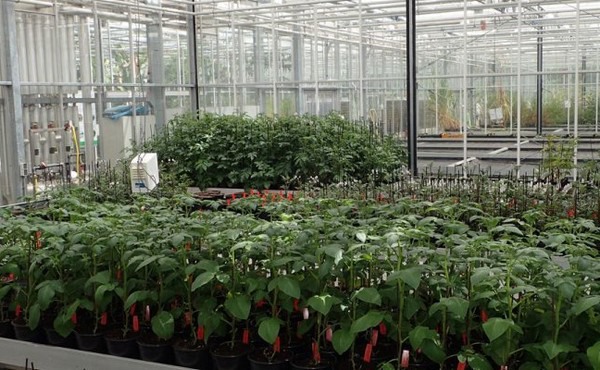The protection of the intellectual property rights of plant breeders could be used to ensure that crops are grown according to good agricultural practices and in this way promote more sustainable food production, argue Wageningen University & Research (WUR) researchers. The debate concerning patents on plants traits currently focuses mostly on the risk of large multinationals acquiring a monopoly position and the potential negative effects this has on food systems. This debate can be expanded in a useful way by also exploring the opportunities for introducing more sustainability into agricultural chains.
In a recently published paper in Agronomy (MDPI), WUR researchers René Smulders, Clemens van de Wiel and Bert Lotz investigate the compatibility of systems for protecting the intellectual property rights of plant breeders and systems for making agriculture more sustainable. The debate surrounding the advantages and disadvantages of innovative plant breeding techniques tends to focus on the fear that multinationals could misuse patents to gain a position of power. The authors claim that it is important to safeguard broad access to new technologies and knowledge. At the same time, they advocate exploring within this debate the opportunities offered by intellectual property rights for innovative plant breeding techniques for making agriculture more sustainable.

Deploy intellectual property rights for good agricultural practice
Intellectual property rights take different forms, from plant breeders’ rights on varieties or patents on certain traits to brand names and contract farming. Smulders and his colleagues show that these systems, which were created to allow breeders to earn back their investments, can also be used to ensure that a farmer grows varieties that are disease- and pest-resistant in ways that maintain and optimize this resistance. This potentially offers great advantages in terms of making cultivation more sustainable. The authors discuss examples of this use of intellectual property rights for maize that is resistant to certain insects and potatoes that are resistant to late blight (Phytophthora). In both cases, over time farmers can spray much less or there is significantly less crop damage.
Policymakers, politicians, and NGOs
The article in Agronomy is also aimed at policymakers, politicians, NGOs, and other groups within society that work on the future of agriculture and food production.
René Smulders: “With this article, we hope to show that there are opportunities for using intellectual property rights on disease-resistant crop varieties to promote good agricultural practice. We also show that this process involves other stakeholders, in particular governments and branch organizations. In this context, it is important that farmers are adequately supported to take an approach that promotes good agricultural practices. For example, together with a number of companies, WUR is currently exploiting an app that automatically informs farmers as soon as one-time spraying is required to maintain a potato species’ resistance to Phytophthora.”
 For more information:
For more information:
Wageningen University & Research
www.wur.nl
